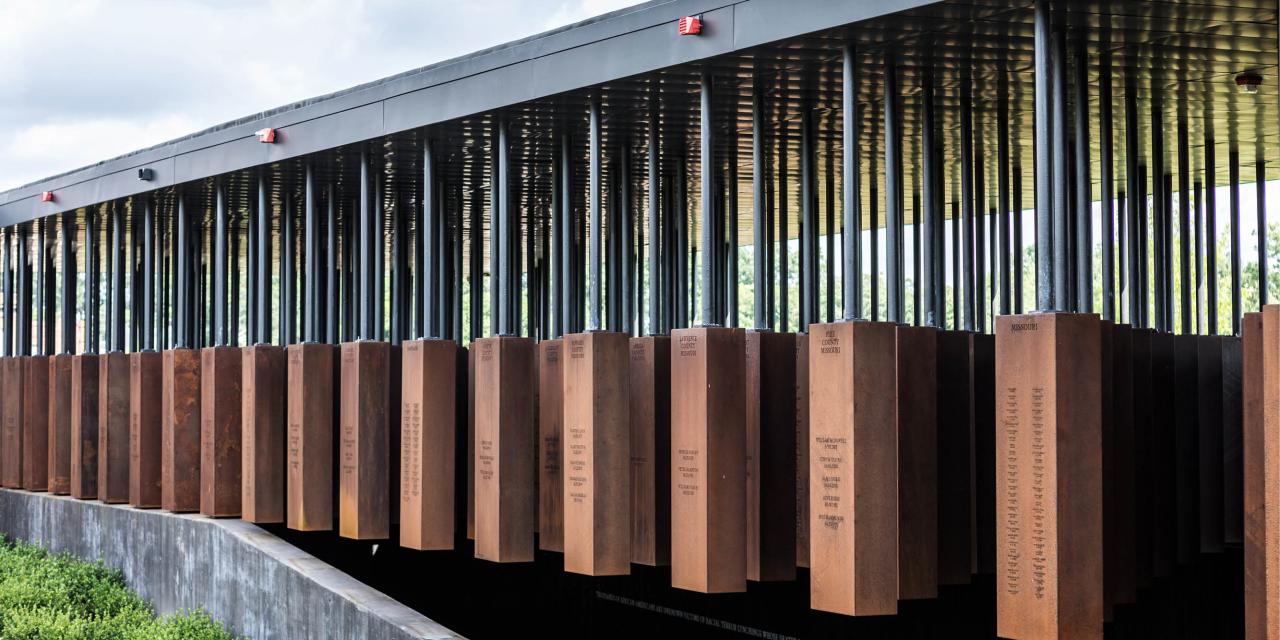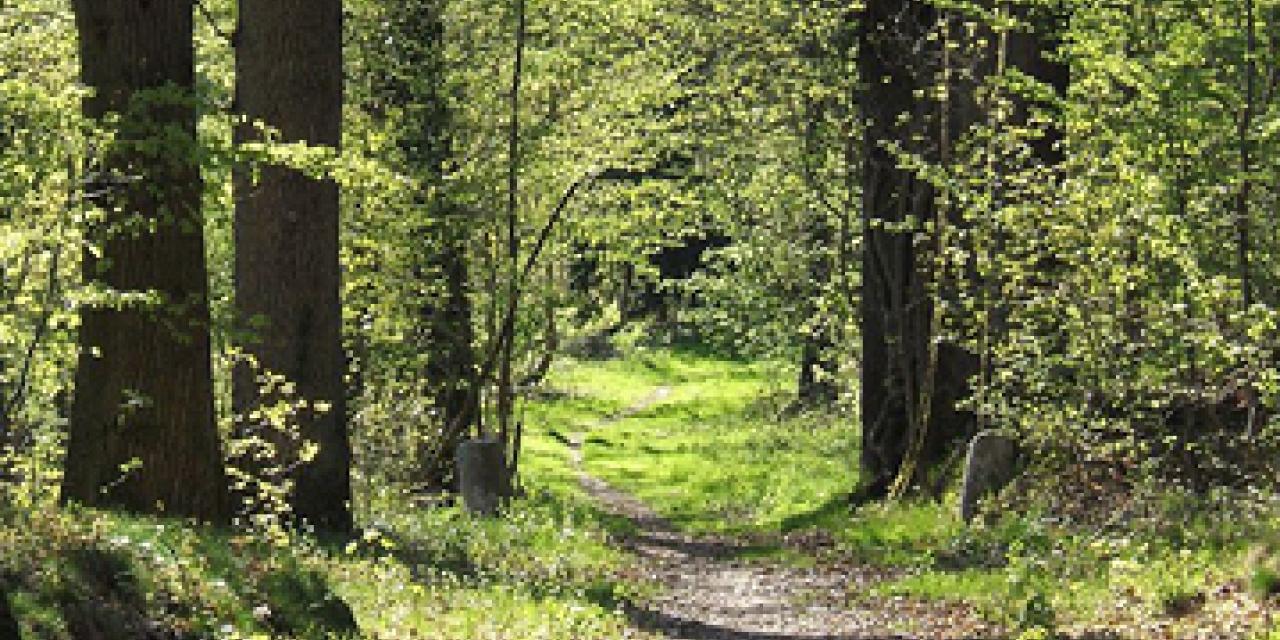Remember the first few months of COVID-19, when millions of people around the world had to stay home? Many of us were glued to our screens, horrified by images of people on ventilators, obsessing over infection rates and the availability of personal protection equipment, and struggling to master virtual worship, school, and work.
Yet some of us also found more time to sleep, enjoy the people we live with, and talk with neighbors—from a distance, of course. Gas prices, traffic noise, and air pollution plummeted. People around the world started enthusing about birds and gardens. They posted photos and videos of wildlife sightings in cities.
I signed up for Creation’s Sabbath, a short-term online course taught in summer 2020 by environmental studies professor James “Jamie” R. Skillen. Creation’s Sabbath was part of the ongoing Christian Witness in a COVID-Shaped World series of courses offered by Calvin University and Calvin Theological Seminary.
My classmates and I researched COVID-19’s environmental impacts, learned about environmental injustice, and explored sabbath practices. Perhaps some of what we learned can give you a vision of shalom that’s strong enough to carry you through this pandemic.
Imagining a Better World
“The course goal is to think Christianly about our response during COVID-19 and after it passes,” Skillen explained in his first lecture. “This pandemic creates opportunities to rethink our work as earthkeepers by highlighting our collective failure and revealing alternative futures. This requires both confession and hope, which we can cultivate by framing earthkeeping within the context of God’s seven-day creation.”
Exploring the pandemic’s positive effects on nature opened our imaginations for how a better world is possible. A doctoral student in Mississippi posted that because of decreased boat traffic in Venetian canals, the water had become clear enough to see jellyfish. A Midwestern pastor shared an item about how economic slowdown improved air quality in northern India. People from 100 miles away could see the Himalayas for the first time in decades.
Garrett Stier, another pastor in the class, said, “From March through June I worked from home, and my wife was off work. We spent lots of time getting our garden going. It was cool to talk in class about being earthkeepers and then see more insects buzzing around our backyard garden.” Stier is a drum teacher, serves as director of liturgical arts at City Chapel in Grand Rapids, Michigan, and is leading a Vital Worship Grant on using the arts to practice lament in worship.
Through lectures, readings, and online discussions, Skillen often returned to Genesis 1 and 2. God created humans and other creatures on the sixth day. All God’s creatures depend on soil, sunlight, water, air, and other creatures. “We humans exercise our remarkable power only by harnessing the energy of the environment on which we depend,” Skillen said. “When we destroy the environment, we dishonor God and ourselves.
“As God's image bearers, we are called to a six-day pattern of doing creative work that honors God and uses our gifts. We are also called to God’s seventh-day rest. We are to seek it for ourselves, our neighbors, and the nonhuman creation.”
Still Not a Sabbath for Everyone
COVID lockdowns forced a change that many humans hadn’t thought was possible. The dramatic drop in fossil fuel use and human mobility improved air, water, and noise levels for many nonhuman creatures.
But, as our classmate Renee Buist, a pharmacy technician in Randolph, Wisconsin, said, “I enrolled in Creation’s Sabbath because of news stories about positive environmental effects due to decreased human activity during lockdown. It has often seemed to me that economic drivers are at odds with environmental concerns, and I was curious about working through that tension from a Christian perspective.”
Skillen reminded us that Romans 8 describes the whole creation groaning while waiting for the sabbath rest that God promises. He said it’s even easier to see environmental interdependence and responsibility when we look at brokenness in human relationships. The Bible talks about this in Ezekiel 34:18: “Is it not enough for you to feed on the good pasture? Must you also trample the rest of your pasture with your feet? Is it not enough for you to drink clear water? Must you also muddy the rest with your feet?” (NIV).
Skillen shared a C. S. Lewis quote from The Abolition of Man that rang true for me: “What we call Man’s power over Nature turns out to be a power exercised by some men over other men with Nature as an instrument” (Skillen’s emphasis]”. Our class watched videos from Kenya and Bangladesh that illustrated why caring for the creation is the same as caring for the poor.
Statistics about racial disparity in health equity, pollution exposure, and coronavirus deaths in the United States affected us even more. Posts in the discussion forum described these insights as “jaw-dropping,” "deeply moving,” and "especially striking.”
“This material was important, relevant, and spiritual to me as a person of color, Christian, and researcher,” participant Araceli Eikenberry wrote. “The health disparities highlighted by COVID-19 are not morally neutral. As one report [p. 4] put it, ‘Health disparities are the predictable end point of decades of policy choices that incentivize economic, housing, and environmental injustice’” (Eikenberry's emphasis). Eikenberry is a Calvin University environmental studies major and program assistant for Plaster Creek Stewards.
In December 2020, a Michigan taskforce showed that specifically addressing coronavirus racial disparities made a big difference in narrowing them.
Joyful Sabbath Practices
Our final classes returned to the biblical theme that God’s sabbath rest is creation’s purpose. All creation is called to enter and delight in God’s sabbath rest. We read Norman Wirzba’s Living the Sabbath: Discovering the Rhythms of Rest and Delight to move from a theological perspective to application. “Sabbath, being the climax of creation, is thus the goal toward which all our living should move,” Wirzba writes. “It is not merely an interlude within life, but rather its animating heart, suffusing every moment with the potential for joy and peace” (34–35).
The current creation sabbath is happening only because of COVID-related human suffering. However, Skillen suggested practices to show that God’s vision for all creation to flourish is already breaking into history. These include thinking about sabbath rest temporally, spatially, inwardly, and as a call to action.
Temporally, we can set aside one-seventh (14 percent) of our week to specifically rest in God’s providential care. This might mean worshiping together, spending time outdoors to notice God’s care for each part of creation, or refraining from participating in the consumer economy.
Spatially, we can think about using the spaces we control to foster rest for other parts of creation. That’s why Renee Buist is now learning about native plants to welcome birds and pollinators to her yard and why Garrett Stier invited two neighborhood families to compost together in his backyard. Another classmate partners with the Nature Conservancy to restore a prairie and oak savanna on conservation easement property.
Practicing sabbath inwardly means being still enough to know that God is God. Skillen said that focusing on an insect, flower, or mountain range helps him reframe how he sees his work. It reminds him that we’re not responsible to restore every part of creation and undo every environmental injustice. That’s God’s job.
Sabbath action should be both individual and corporate. Our discussion forum was lively when Skillen suggested choosing one practice to learn more about. People described using Lent as a time for experimenting with vegan or vegetarian diets; fasting from hot water, single-use plastics, or packaging; and biking rather than driving. People might choose to join a community group to address lead poisoning, restore a watershed, or address the disparity between who makes the pollution and who suffers because of pollution.
“We often think individually, but it’s equally important to focus on collective action because environmental justice is public justice,” Skillen said. “We need to address economic and political structures that bend toward destruction rather than flourishing. I trust the information from the U.S. Conference of Catholic Bishops and the Christian Reformed Church’s Office of Social Justice, including these Canada-focused resources. They do good research and alert you to which legislators to contact.”
Finally, we agreed, choose sabbath rest practices that bring you joy and renew your trust and hope that God is making all things new. For me, this means staying involved with community projects related to diversity, equity, and inclusion in urban agriculture, community gardens, public greenspace, and healthy food.
LEARN MORE
Read course descriptions and sign up for a short-term online course in the Christian Witness in a COVID-Shaped World series. Here’s how to learn well in online courses. Register for the 2021 Calvin Symposium on Worship to hear climate scientist Katharine Hayhoe.
Scientists and policymakers don’t always know the best way to address an environmental problem, so they must experiment, gather data, look for unintended consequences, and adapt. James “Jamie” R. Skillen illustrates this in his book This Land Is My Land: Rebellion in the West.
Buy these books for a discussion group or for your church library:
- Beyond Stewardship: New Approaches to Creation Care, David P. Warners and Matthew Kuperus Heun, eds. Skillen wrote Chapter 7, “Stewardship and the Kingdom of God.”
- Earthkeeping and Character: Exploring a Christian Ecological Virtue Ethic and For the Beauty of the Earth: A Christian Vision for Creation Care, by Steven Bouma-Prediger
- God’s Sabbath with Creation: Vocations Fulfilled, the Glory Unveiled, by James W. Skillen
- Living the Sabbath: Discovering the Rhythms of Rest and Delight, by Norman Wirzba
Covering Climate Now is a “global journalism initiative committed to more and better coverage of the defining story of our time.” NASA’s Climate Time Machine visualizes how Earth’s Sea ice, sea levels, carbon dioxide levels, and global temperature are changing over time.
Looking for films and study group materials? Try:
- Climate Conversation: Bangladesh is a free three-week Bible study that includes five brief videos.
- Climate Conversation: Kenya is a free five-week Bible study that includes five brief videos.
- Dark Waters depicts the legal fight surrounding DuPont dumping chemicals in a West Virginia landfill, sickening a town.
- No Impact Man documents how Manhattan residents Colin Beavan and his family tried to have zero environmental impact during an entire year.
- The Cry of the Earth and the Cries of the Poor: An OFM Study Guide on the Care of Creation is a beautifully illustrated, free 48-page resource to help church communities choose feasible actions.
START A DISCUSSION
Feel free to print and distribute this story at your staff, board, or education or worship committee meeting. These questions will help people start a conversation about God’s sabbath rest intentions for all creation:
- How do you define sabbath rest? How do you think it applies to the creation?
- How does your congregation seek sabbath rest for yourselves, your neighbors, and the nonhuman creation?
- Where have you seen or experienced environmental injustice, whether related to the COVID-19 pandemic or to something else?

